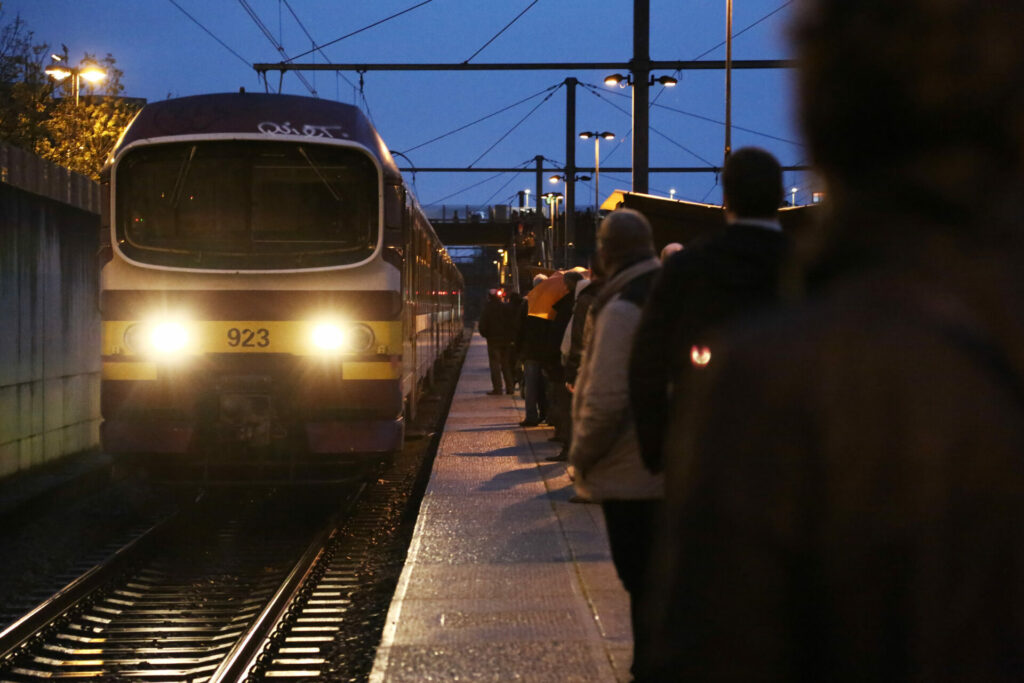While big plans for night trains were announced, from the European capital to Barcelona, Prague, Berlin and Malmö. But while both the plans and demand are there, the night trains will not be setting off anytime soon, Bruzz reports.
The only city that can currently be reached by night train from Brussels is Vienna, a trip you need to book months in advance. That night train remains very popular: after it was reintroduced in 2020, the number of journeys had to be increased due to its success.
Postponed plans
Two start-ups that planned a connection with Berlin and Prague announced they wanted to realise this under the European Sleeper brand, while Belgian start-up Ostende Vienne Orient Experience (OVOE) proposed train paths to Salzburg, Innsbruck and Milan. Plans for a train between Brussels and Malmö, Sweden, were also announced.
In reality, not much remains of the enthusiastic proposals. No operator was willing to bear the costs of the connection between Brussels and Malmö, while the night trains to Berlin and Prague have been postponed for the second time. OVOE also waived night trains this summer.
2021: European Year of Rail
The NGO, Back on Track Belgium, works towards a European night train network with Brussels as its central hub. They explain why the delays to the promised international night train services. “The underlying problem - the poor economic environment for night trains - has still not changed,” said Alexander Gomme, spokesperson for the NGO.
“The European Year of Rail turned out to be primarily a communication stunt,” Gomme said. “The Commission had announced a night train plan, but that turned out to be an empty box. Between 2000 and 2019, night train traffic grew by barely 1%, while people started travelling a lot more. The number of night trains has fallen by two-thirds, and their average length has decreased.”
However, the night train that does operate between Brussels to Vienna is in high demand. “It is fully booked until the end of the summer,” confirms Kees Smilde, spokesperson for the passenger organization TreinTramBus.
Not enough carriages
A major obstacle to creating more night train connections is that start-ups face a lack of suitable carriages, as loungers have not been produced in Europe since the 2000s, according to Gomme. “Small series of sleeping cars – with better beds – have been made, but mainly on behalf of national railway companies.”
European Sleeper was forced to postpone its night trains for that reason, said co-founder Chris Engelsman. “We are now negotiating with rental companies. They still exist, but they are scarce. Buying night trains yourself is a good investment, but there are four to five years between purchase and delivery.”
Austrian railway company ÖBB ordered 33 new trains in Vienna. “But a night train costs something in the order of €25 million euros. Those are huge costs for a start-up,” said Smilde.
Related News
- Night train to Barcelona planned with stops in Brussels and Antwerp
- Night trains from Brussels to French beaches and ski resorts to become reality
European Sleeper, therefore, released shares for the second time, after last time’s shares were sold out in 15 minutes. With this money, they will prepare the file to convince the European Investment Bank to lend them the money needed to invest in carriages, Engelsman explained.
But that process will take time, and so will the preparation of realising the train. “Placing a train in Europe is a maze of bureaucracy and regulations, and that takes a lot of time,” said Engelsman.
Expensive Belgian rails
Another issue is the high cost per kilometre for trains in Belgium, according to Gomme of Back on Track. That price is €8,70, although the exact cost depends, for example, on the time and the number of stations that are visited. In comparison: in Eastern Europe, trains pay less than €1.
Gomme also expects the ÖBB will not make much profit from the successful connection between Vienna and Brussels, saying it is likely “symbolically important” for the Austrians to establish a connection with the EU capital.
Lack of subsidies
The high cost for trains to drive in Belgium is one of the reasons why the night train to Malmö wasn’t realised, Gomme says. As Belgium was between governments at the time the tender was launched, it was unable to issue a subsidy.
But there is quite a bit of political will on the part of Mobility Minister Georges Gilkinet to stimulate the night train, according to Gomme
However, cheaper train path fees alone are not the solution, he says. He points out the unfair competition with airlines, which do not have to pay VAT or kerosene tax, and the lack of a common ticketing system. “It will not be possible without substantial subsidies.”
Kees Smilde agrees: “The government should provide a start-up subsidy. There is a huge market in the direction of France alone.”
On a more positive note, the charter trains to the French ski areas and the Côte d’Azur are set to arrive in 2023 and 2024.

